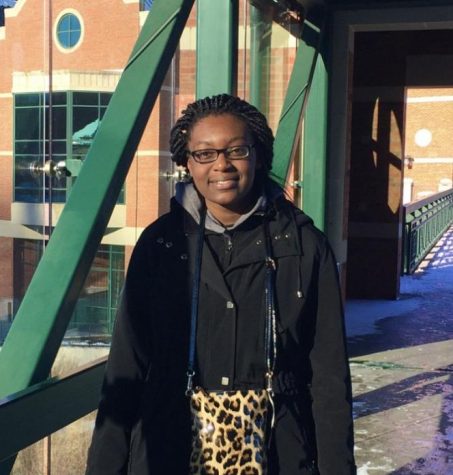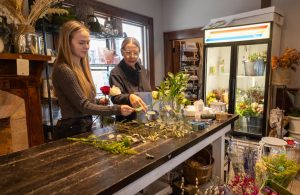App State Counseling Center continues services online amid COVID-19
May 1, 2020
App State’s Counseling Center is offering virtual workshops while the university’s doors close for the semester. The counseling center wants to practice social distancing while continuing to share their resources to students.
COVID-19 is impacting everyday life. Restaurant hours are shorter, schools are closed and strict guidelines are in place to prevent individuals from contracting the virus.
The counseling center wants to continue their services during this difficult time by having virtual workshops. The workshops provide fun and exciting activities to students, sharing different methods targeted to aid students dealing with mental health.
Christopher Hogan is the director of the counseling center. He’s a licensed psychologist in North Carolina and has worked at App State for nearly 19 years. Hogan said the center’s services are slightly different due to CDC recommendations for social distancing.
“We offer initial consultations by phone instead of students walking into the counseling center as well as individual teletherapy appointments,” Hogan said.
Students can call the counseling center at 828-262-3180 to schedule an initial consultation.
“Once scheduled, students complete background information before their phone appointment with the counselor, “ Hogan said. “During the appointment the counselor talks with them about their current concerns, offering them options for services and resources that best matches their needs.”
Audrey Stone is the group therapy coordinator at App State. Stone said that the Quick Access workshops were created a few years ago by staff members. They were originally performed in-person.
“These in-person groups were created by staff for students who came to the counseling center wanting to quickly gain coping skills and learn strategies for managing common student concerns such as anxiety, relationship issues, handling difficult emotions, diminished self-esteem and more, “ Stone said.
These workshops are formatted like a class thus students can freely respond or discuss their experiences. Stone said that students are not expected to talk if they do not wish to.
“Our workshops are also available on instagram as well.” Stone said.
There are three workshops: Anxiety Toolbox, Kind Mind and HEALS. The workshops are conducted live through Zoom and posted on YouTube for students who can’t attend. Each video has a variety of activities that students can do at home.
Anxiety Toolbox focuses on making coping skills for students who experience anxiety and stress-related issues. The activities target individuals by reducing distress while increasing positive coping mechanisms.
Blake Crooks works for the counseling center. He said the strategies used to conduct these activities for the Anxiety Toolbox workshop include mindfulness, cognitive defusion, cognitive restructuring, progressive muscle relaxation, grounding, and breathing exercises.
“The strategies are often taught in a therapeutic setting to support stress and anxiety management. Although these skills may not eliminate anxiety or stress completely, we hope to support students in feeling more confident in their ability to manage these experiences.” Crooks said.
Kind Mind aids those who suffer from harsh, self-critical voices in their head. Kind Mind focuses on practicing skills that are proven to improve mood, support a healthier self-esteem and build compassion in one’s self.
Healthy Emotions and Life Skills, founded through App State, is a Dialectical Behavioral Therapy Based Workshop. Matt Perlman is a doctoral intern at App State and often helps facilitate the workshop. This workshop is available every Tuesday at 1 p.m.
Perfman said that Dialectical Behavior Therapy is an evidence-based treatment for a variety of mental health concerns. According to Behavioral Tech, DBT strives to treat borderline personality disorder. DBT enlightens a person’s mood while practicing healthy habits to regulate emotions and improving relationships.
“What’s great about DBT is that the concepts and skills translate really well for a variety of audiences. You don’t need to be dealing with a significant mental health crisis to benefit from DBT-based skills,” Perfman said. “That’s why our HEALS group uses a DBT foundation: we believe that almost anyone can find something meaningful and useful in these modules.”
Students can find the Zoom links on AppSync through the counseling center portal page.
“I encourage students to make sure they are taking time to still connect with their support systems,” Hogan said. “Using self-care and coping strategies, and making time for exercise (e.g. a brisk walk) and time outdoors in nature has strong evidence that it benefits our mental health.”













Ojasvi • May 2, 2020 at 5:40 am
Mobile addict